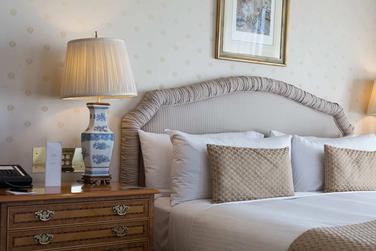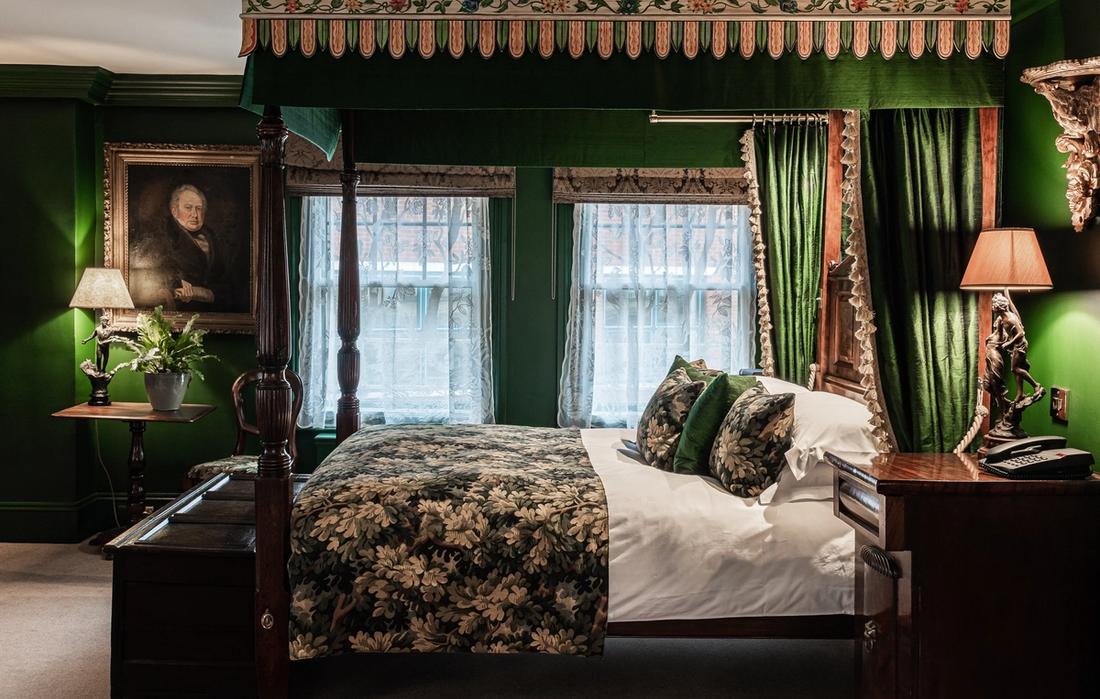The Good Hotel Guide is the leading independent guide to hotels in Great Britain & Ireland, and also covers parts of Continental Europe. The Guide was first published in 1978. It is written for the reader seeking impartial advice on finding a good place to stay. Hotels cannot buy their way into the Guide. The editors and inspectors do not accept free hospitality on their anonymous visits to hotels. All hotels in the Guide receive a free basic listing. A fee is charged for a full web entry.
The Good Hotel Guide
About Us
Independent
Recommended
Trusted
Independent
Recommended
Trusted

Dodgy Deals
All blog posts
3 minutes
2 Nov 2017
Dodgy Deals
All blog posts
3 minutes
2 Nov 2017
By Adam Raphael

What is the best way to book a hotel room? You need to be innocent or gullible, to believe that you will get the best deal through an online travel agent (OTA). Yet millions of us do just that, persuaded by advertising campaigns promising a bargain. The cost–billions of pounds in commission payments ranging as high as 25%.
Two-thirds of those who shop for hotels consult an OTA before deciding where to stay. Booking.com, Expedia, Agoda and other OTAs account for well over half of all European hotel bookings. The Competition and Markets Authority (CMA) has just published a preliminary study which suggests that many of these online booking sites are abusing their dominant position by misleading travellers and flouting consumer law.
Among the concerns highlighted by the CMA study are hidden charges, false discounting, pressure selling and the way search results are influenced by commission payments. The more the hotel pays, the higher up it appears on the page. Google search results also deceive many travellers who do not realise that clicking on the paid-for top entry will take them to an OTA site rather than the hotel’s website.
The charge sheet against the OTAs is so long that they will almost certainly have to change the way they operate. This is overdue. Four years ago, I criticised the Office of Fair Trading, the CMA’s predecessor, for failing to prevent ‘rate parity’ agreements, the practice by which OTAs pressure hotels not to undercut their online rates. As I said then: ‘The OFT should be less spineless and widen its inquiry into what is going in the hospitality industry.’
The Good Hotel Guide has always urged its readers to book directly with hotels. That way they are likely to get a better deal. We do our best to encourage this by including 25% discount vouchers in each copy of the print edition and enabling GHG website users to print 10% discount vouchers for use in participating hotels. More than 150 GHG selected hotels take part in these schemes—but that is not as many as I would like. If hotels did more to encourage direct bookings, it would help wean them off the quick fix that OTAs provide. The Queensberry in Bath is a good model. It offers all those who book directly a 10% reduction on the price of dinner, a 20% reduction on the cocktail of the week, and half-priced valet parking.
The explanation why OTAs are so successful in sucking billions from the hotel industry is that they meet a need. Many hotels, even those that are well managed, pay insufficient attention to marketing. The OTAs with their slick websites and efficient operations fill this vacuum. I also acknowledge that many guests, particularly business travellers, find booking a hotel via an OTA simple and quick. And there are other advantages including easy cancellation and a world wide range of properties. Certainly, if I was wanting to book a hotel in Timbuctoo or anywhere else where I couldn’t speak the language, I would use an OTA.
I should also make clear, in the interest of full disclosure, that the Guide cooperates with one of the leading OTAs, Booking.com. We get a 5% share of the commission paid by hotels which have declined to pay for a GHG web entry. The Goring Hotel, for example, has had a free entry in the print edition of the Guide for many years because it is a great London hotel. But if you click its check availability button on its GHG website entry, you will be taken directly to Booking.com’s entry for the Goring. So what is my defence? Simply this: the Guide could not exist without the revenues from its website. However, I still firmly believe that OTAs should clean up their act.


